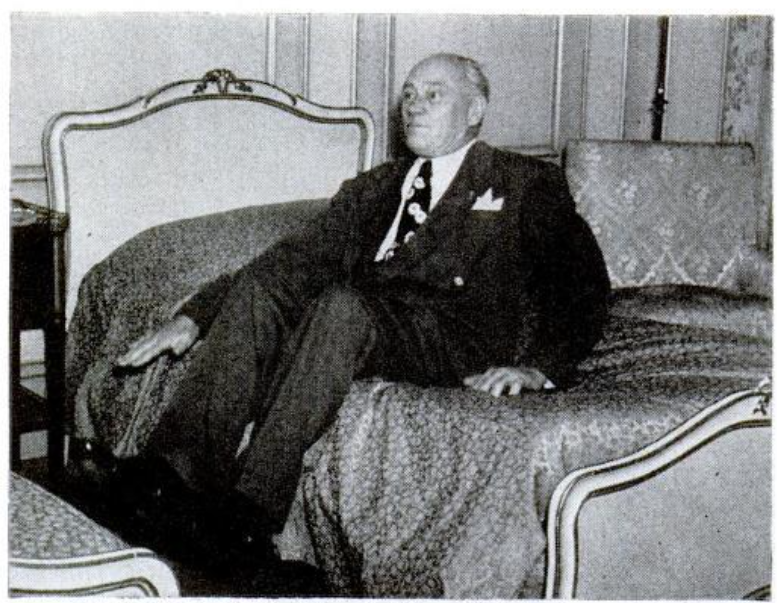I recently read about Conrad Hilton and became curious about the origin of the “5 Points” in the name of Hilton Five Points hotels. I learned this concept reflected Hilton’s method for evaluating property value, helping him make smart purchasing decisions. As I explored his story, I discovered Hilton wasn’t just a hotel industry pioneer but also a man of strong ethics. What impressed me most was how he built a thriving hotel empire during a time when upscale accommodations were rare.
“To be haunted by past failures or satisfied with past successes is to arrest forward motion.” – Conrad Hilton
Hilton’s Five Points
Hilton’s five guiding principles were designed to ensure the success and profitability of each property:
- The property’s location: This principle focuses on choosing prime locations that attract travelers and offer convenient access to key attractions or business hubs.
- Its physical condition and upkeep: Hilton focused on cleanliness, aesthetics, and structural quality to ensure a consistent, comfortable guest experience.
- The demand for a hotel in the area: Before investing, Hilton evaluated the area’s market demand, ensuring that the property met the needs of tourists, business travelers, or local events.
- The cost to build or acquire compared to its income potential: Each property was analyzed to ensure the investment balanced costs with expected revenue.
- The availability and terms of financing: Securing favorable financing terms was key to ensuring profitability, helping Hilton manage costs and focus on growth.
These principles formed the foundation of Hilton’s strategy, driving its reputation for quality and success worldwide.

The Hilton Model
Hilton believed a successful business relied on great customer service and caring for employees. He emphasized treating employees with respect, providing fair wages, and ensuring they felt valued within the organization. This philosophy became the foundation of the “Hilton Model,” a business approach that prioritized employee satisfaction as key to the company’s success.
The Hilton Model included several key practices:
- Paying employees above-average wages: Hilton believed that competitive pay not only attracted top talent but also motivated employees to perform at their best.
- Offering extensive training and development programs: The company invested heavily in training to ensure employees had the skills and confidence needed to deliver exceptional service. Career development was also a focus, giving employees opportunities to grow within the organization.
- Providing comprehensive employee benefits: Hilton introduced benefits like health insurance, retirement plans, and other perks to ensure their staff felt secure and supported, both personally and professionally.
This employee-centered approach helped Hilton build a loyal and motivated workforce. As a result, the company experienced lower turnover rates, higher productivity, and a stronger sense of teamwork. More importantly, satisfied employees led to happier guests, as their enthusiasm and dedication showed in the quality of service.
By prioritizing its people, Hilton became known for exceptional hospitality and set a standard that shaped the hotel industry. The Hilton Model proved that investing in employees was not just good ethics—it was good business.
Community Involvement
Furthermore, Conrad Hilton’s business strategies also emphasized the importance of community involvement and giving back. He firmly believed that businesses had a responsibility not only to generate profits but also to contribute positively to society. Hilton saw success as an opportunity to uplift the communities his hotels served.
Throughout his career, he implemented various philanthropic initiatives, supporting education, healthcare, and disaster relief efforts in numerous regions. For example, Hilton provided funding for schools and scholarships to give young people better opportunities, contributed to hospitals to improve access to medical care, and extended aid during natural disasters to support recovery efforts. His vision of corporate responsibility showed how businesses can make a lasting impact beyond their operations.
Hilton’s Innovations
Conrad Hilton was not just a visionary entrepreneur; he was a transformative force in the hospitality industry. Known for his ethical business practices and groundbreaking innovations, Hilton redefined how hotels operate on a global scale. His forward-thinking strategies continue to shape the industry today.
The Centralized Reservation System
Hilton was among the first hoteliers to introduce a centralized reservation system—a visionary idea that revolutionized the booking process. This system let guests book rooms across all his hotels from one central location, removing the need for lengthy calls to individual properties. By streamlining reservations, Hilton enhanced operational efficiency while significantly improving the guest experience. Travelers could now secure accommodations quickly and conveniently, setting a new industry standard. Over the years, this approach evolved into the global reservation systems we use today, cementing Hilton’s legacy as a hospitality pioneer.
Customer Satisfaction: The Heart of the Hilton Brand
In the competitive world of hospitality, Hilton understood that prioritizing customer satisfaction was essential for sustained success. His philosophy centered on delivering exceptional service and creating personalized experiences that made every guest feel valued. Hilton’s focus on more than basic accommodations set the brand apart, earning a reputation for excellence with travelers worldwide.
To achieve this, Hilton emphasized the importance of luxurious amenities, warm atmospheres, and above all, well-trained staff. By focusing on the guest experience, Hilton built a loyal customer base and proved that prioritizing customers is key to building trust, loyalty, and growth.
A Commitment to Excellence
Conrad Hilton’s relentless pursuit of excellence was the cornerstone of his success. He believed that every detail mattered, from selecting prime locations for his hotels to ensuring staff were meticulously trained. His uncompromising standards elevated the quality of Hilton properties, setting a benchmark for the entire hospitality industry.
Hilton’s commitment to exceptional service set his brand apart and inspired other businesses to match his standards. His focus on exceeding guest expectations made Hilton a global leader in hospitality and a model for excellence.
The Power of Well-Trained Staff
Hilton firmly believed that a hotel’s success depended on the quality of its employees. For him, frontline staff were the face of his brand, playing an essential role in delivering memorable guest experiences. Recognizing this, Hilton invested heavily in staff training programs to ensure his team was equipped to provide world-class service.
Well-trained employees, Hilton discovered, were more confident, efficient, and motivated. This translated directly into higher productivity, greater customer satisfaction, and ultimately, increased profitability. By focusing on his team’s growth, Hilton improved the guest experience and set his hotels up for long-term success.
A Lasting Legacy
Conrad Hilton’s innovations and principles revolutionized the hospitality industry, establishing new standards for service, efficiency, and excellence. From pioneering technologies like the centralized reservation system to fostering a guest-first culture, Hilton’s legacy shows the impact of visionary leadership. His dedication to quality and customer care proves that true success comes from putting people first.
Lessons from Conrad Hilton’s Success
Conrad Hilton’s remarkable journey offers timeless insights for aspiring entrepreneurs and leaders. Here are five key lessons from his life and career:
1. Persevere in the Face of Challenges
Hilton’s path to success was anything but smooth. Despite encountering numerous setbacks and failures, he never wavered in his pursuit of his dreams. His relentless determination and unwavering belief in his vision were pivotal in turning his goals into reality. Hilton’s story underscores the importance of resilience and perseverance in achieving success.
2. Take Calculated Risks
Hilton had an exceptional ability to see opportunities where others only saw obstacles. He wasn’t afraid to take calculated risks to realize his ambitions. His willingness to embrace uncertainty helped him seize growth opportunities others might have missed, driving his business expansion. For leaders, taking smart risks can be the key to unlocking extraordinary success.
3. Lead with Integrity and Honesty
Integrity and honesty were central to Hilton’s business philosophy. He firmly believed that trust was essential for building long-term relationships with employees, customers, and partners. Even in difficult situations, he prioritized ethical decision-making and transparency.
Hilton’s example reminds us that true leadership is built on a foundation of trust and accountability. In today’s fast-paced world, staying true to core values builds lasting success and inspires loyalty.
4. Embrace Diversity and Inclusion
Hilton recognized the immense value of diversity in driving innovation and growth. He valued inclusivity, knowing that diverse perspectives and experiences drive creativity and a dynamic workplace.
In an increasingly globalized world, embracing diversity is not only a moral imperative but also a strategic advantage. Businesses that prioritize inclusivity are better positioned to understand and serve diverse customer needs, paving the way for greater success.
5. Give Back to the Community
A dedicated philanthropist, Hilton believed in the importance of making a positive impact on society. He actively supported charitable causes and contributed to the well-being of the communities his business touched.
Leaders today can learn from Hilton’s example by prioritizing social responsibility. Supporting local charities, creating opportunities for underprivileged individuals, or sponsoring community initiatives strengthens stakeholder relationships and boosts the company’s reputation. Furthermore, fostering a culture of giving can boost employee morale and instill a sense of purpose within an organization.
Conclusion
Conrad Hilton’s legacy serves as a timeless lesson in leadership, vision, and values. His life shows that true success goes beyond personal or business achievements—it’s about making a meaningful, lasting impact on the world.
Hilton’s principles of hospitality have endured through generations, remaining as relevant today as ever in our fast-paced business landscape. By prioritizing customer satisfaction, fostering excellence, embracing diversity, and supporting the community, businesses can follow his lead. These values not only drive success but also lay the foundation for a legacy that transcends time.

